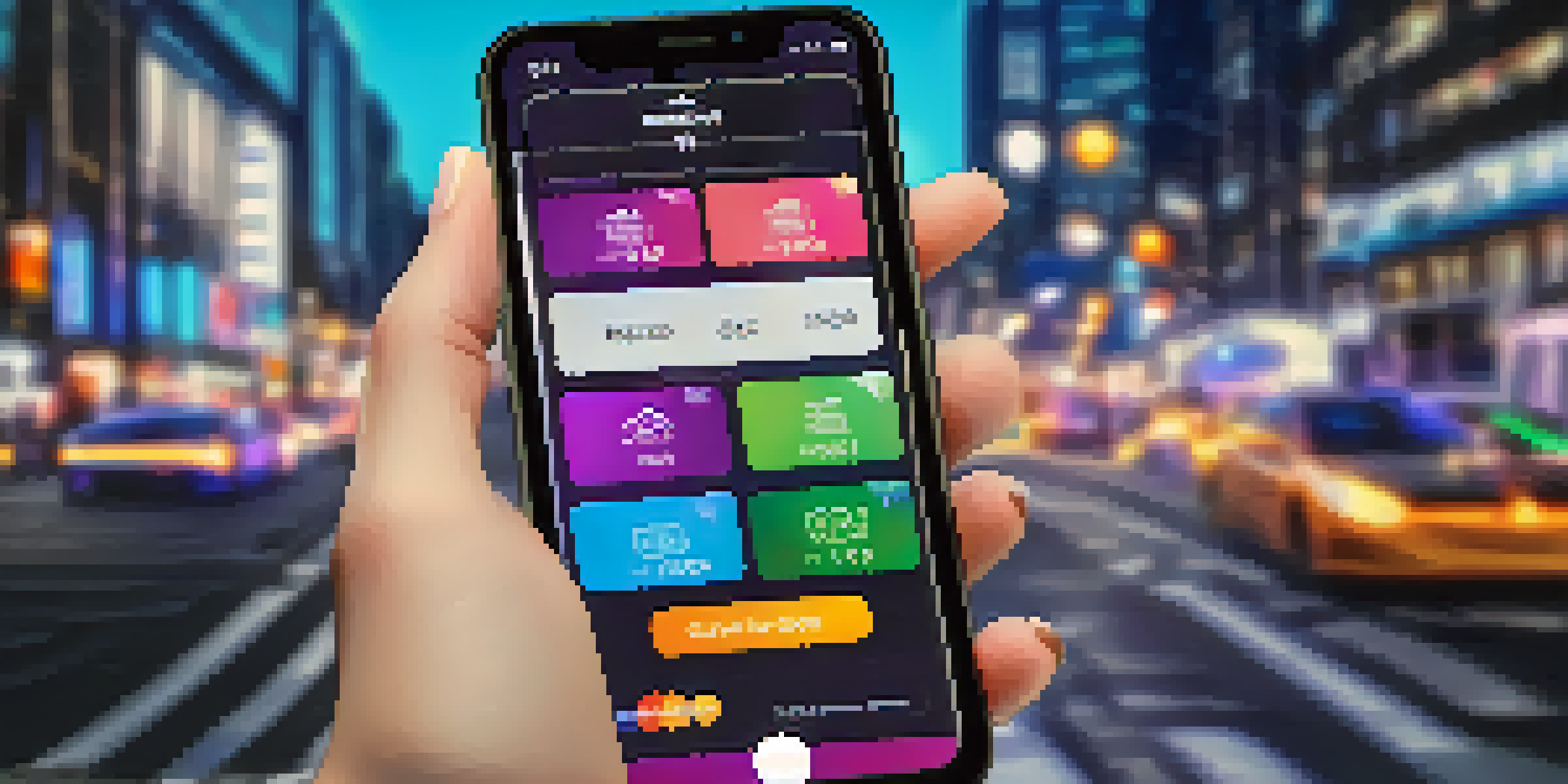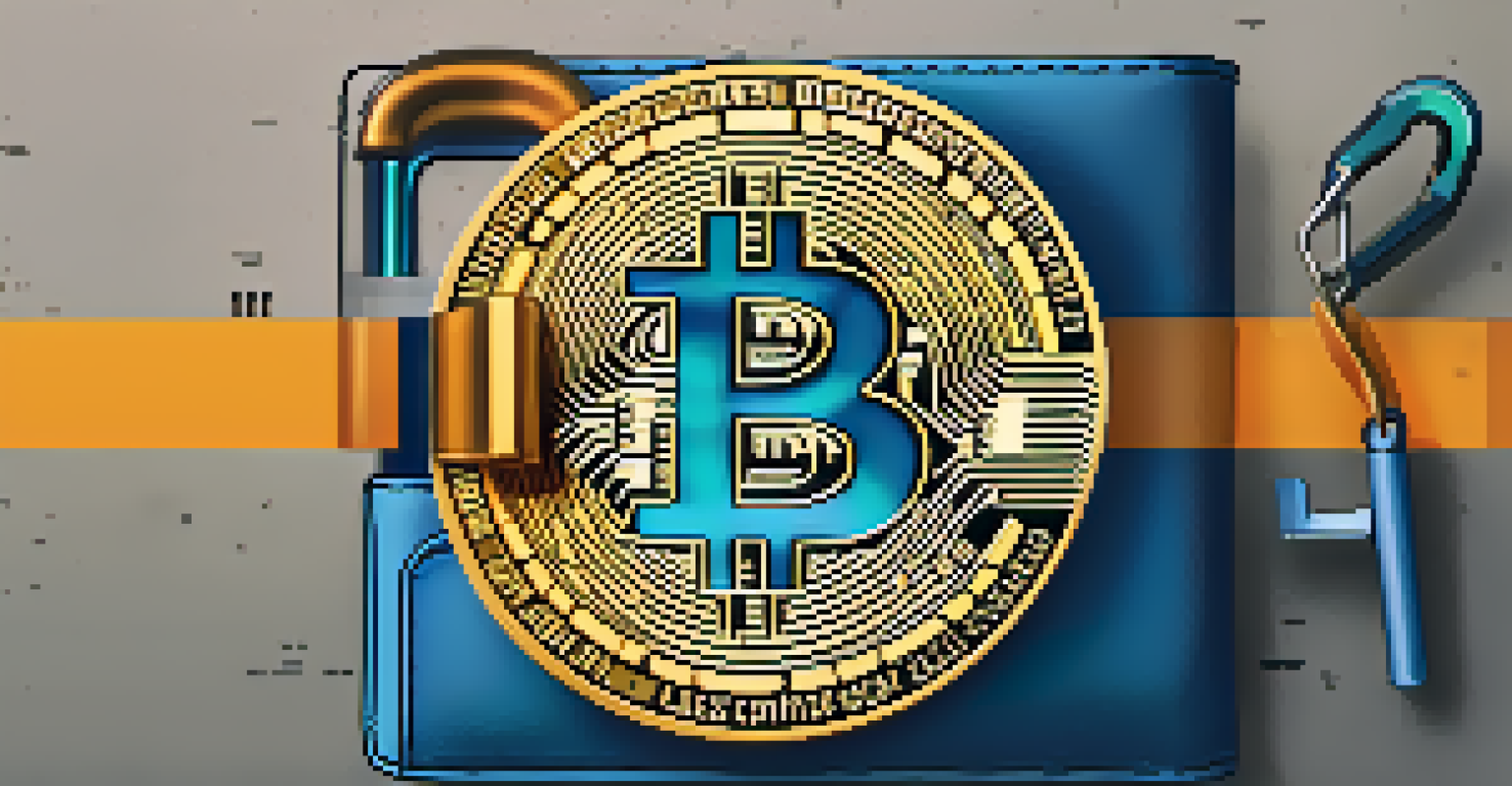Mobile Bitcoin Wallets: Features and Best Practices

What is a Mobile Bitcoin Wallet and How Does It Work?
A mobile Bitcoin wallet is an application that allows users to store, send, and receive Bitcoin directly from their smartphones. Unlike a traditional wallet, which holds physical cash, a mobile wallet securely holds your digital assets using cryptographic keys. These apps connect to the Bitcoin network, enabling transactions and balance checks in real-time.
Bitcoin is a technological tour de force.
One of the primary functions of a mobile wallet is to facilitate easy transactions. When you want to send Bitcoin to someone, you simply input their wallet address and the amount. The app then generates a transaction that is broadcast to the Bitcoin network, where it’s verified and added to the blockchain.
Mobile wallets come in various forms, including custodial and non-custodial options. Custodial wallets store your private keys on a server, while non-custodial wallets give you complete control over your keys, enhancing security and privacy.
Key Features of Mobile Bitcoin Wallets to Look For
When choosing a mobile Bitcoin wallet, it’s essential to consider its features. Security measures, such as two-factor authentication (2FA) and biometric login, are crucial for protecting your assets from unauthorized access. Look for wallets that offer encryption and backup options for added safety.

User-friendly interfaces also play a significant role in the effectiveness of a mobile wallet. A well-designed app should make it easy for both beginners and experienced users to navigate their transactions and manage their funds. Features like QR code scanning for quick payments can enhance the user experience.
Understanding Mobile Bitcoin Wallets
Mobile Bitcoin wallets are apps that let you store, send, and receive Bitcoin using cryptographic keys on your smartphone.
Lastly, check for compatibility with various cryptocurrencies. While you might primarily want to store Bitcoin, some wallets allow you to hold other digital currencies. This flexibility can be beneficial if you plan to diversify your cryptocurrency portfolio in the future.
Security Best Practices for Using Mobile Bitcoin Wallets
When it comes to mobile Bitcoin wallets, security should always be a top priority. First, ensure you download the wallet app from a reputable source, like the official website or app store, to avoid phishing attempts. Fake wallets can lead to the loss of your funds.
The future of money is digital currency.
Next, enable all available security features, such as 2FA and PIN codes. This adds an extra layer of protection, making unauthorized access much more difficult. Additionally, regularly update your wallet app to benefit from the latest security patches and improvements.
Finally, consider using a hardware wallet for storing larger amounts of Bitcoin. While mobile wallets are convenient for day-to-day transactions, hardware wallets provide enhanced security by keeping your private keys offline. This is especially important for long-term storage of your digital assets.
Understanding Custodial vs. Non-Custodial Wallets
A critical distinction in mobile Bitcoin wallets is between custodial and non-custodial options. Custodial wallets are managed by a third-party service that holds your private keys for you. This can be convenient, but it also means you must trust that service to keep your funds secure.
On the other hand, non-custodial wallets allow you to retain control of your private keys. This means you are solely responsible for the security of your Bitcoin. While this offers greater autonomy, it also requires you to take extra precautions to protect your keys from loss or theft.
Security is Key for Wallets
Prioritizing security features like two-factor authentication and regular updates is essential to protect your Bitcoin assets.
Deciding between custodial and non-custodial wallets ultimately comes down to your personal preference and comfort level with managing security. If you prefer convenience and ease of use, a custodial wallet may be suitable, but for those who value control and security, non-custodial options are the way to go.
How to Choose the Right Mobile Bitcoin Wallet for You
Choosing the right mobile Bitcoin wallet involves assessing your individual needs and preferences. Start by identifying how you plan to use the wallet—will it be for everyday transactions, long-term storage, or both? This clarity will help narrow down your options.
Next, consider the wallet's reputation and user reviews. Research what other users have experienced regarding security, ease of use, and customer support. A wallet with a strong reputation can provide peace of mind, knowing that your assets are in safe hands.
Finally, test out a few wallets before making a final decision. Most mobile wallets are free to download, so you can explore their features and interfaces. This hands-on experience can give you a better feel for which wallet aligns best with your needs.
Tips for Safeguarding Your Mobile Bitcoin Wallet
To safeguard your mobile Bitcoin wallet, start by creating a strong, unique password. Avoid using easily guessable information, and consider using a password manager to keep track of complex passwords. A solid password is your first line of defense against unauthorized access.
Regularly back up your wallet to ensure you don’t lose access to your funds. Most mobile wallets provide a recovery phrase or seed phrase that you can write down and store securely. This phrase can help you restore your wallet in case you lose your device or uninstall the app.
Choosing the Right Wallet
Selecting a mobile Bitcoin wallet depends on your usage needs, wallet reputation, and a hands-on exploration of different options.
Lastly, be cautious with public Wi-Fi networks. Avoid accessing your wallet while connected to unsecured Wi-Fi, as hackers can intercept your data. If you must use public Wi-Fi, consider using a virtual private network (VPN) for an added layer of security.
The Future of Mobile Bitcoin Wallets and Their Role
The future of mobile Bitcoin wallets looks promising as technology continues to evolve. With advancements in blockchain technology and security protocols, we can expect wallets to become even more secure and user-friendly. Innovations like biometric authentication and improved user interfaces will enhance the overall experience.
Moreover, as cryptocurrency adoption grows, mobile wallets will likely play a more significant role in everyday transactions. Imagine buying a coffee or groceries with Bitcoin seamlessly through your mobile wallet, making digital currencies a standard part of commerce.

In summary, mobile Bitcoin wallets are set to become a vital tool for managing digital assets. By staying informed about the latest developments and best practices, users can confidently navigate the world of cryptocurrency and make the most of their mobile wallets.